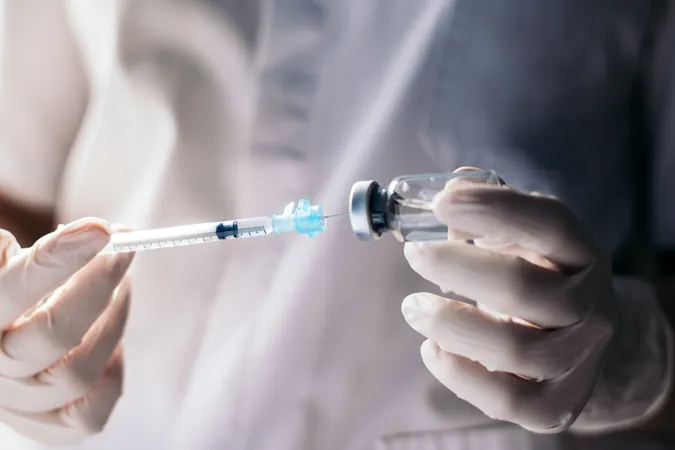
The COVID Vaccine Strategy: A Lifesaving Investment That Keeps on Giving
2025-04-12
Author: Ming
A Groundbreaking Moment for Global Health
Five years ago, amid the chaos of the COVID-19 pandemic, brave volunteers stepped up to trial what would become a revolutionary vaccine. Within just a year, millions of Americans had received their doses—for free! Now, fresh research reveals that this strategic move has paid off in ways we couldn't have imagined.
A Wise Investment for America
A recent study from the University of Michigan (U-M) has confirmed that the U.S. national vaccination strategy not only saved countless lives but also added financial value—making this initiative an exemplary public health success story.
"This was a prudent investment for the American people, based on conservative analysis," asserts Lisa Prosser, the study's lead author and U-M professor. The federal government’s proactive approach to expedite vaccine testing and distribution was pivotal.
Quantifying the Impact: Savings and Benefits
The research team, including senior author David Hutton, constructed a detailed economic model assessing the trade-offs of the vaccine rollout during its initial year. They considered testing costs, hospitalizations, long COVID, and productivity losses.
Even without accounting for productivity losses, the vaccine was cost-effective for most adults over 40. For younger adults aged 18 to 39, who generally faced less severe cases of COVID, the vaccine still represented a smart economic choice.
Underestimation of Financial Benefits
The researchers caution that their findings likely underrepresent the true savings. Their model did not account for indirect costs like family care duties, individual out-of-pocket expenses, or travel for medical visits.
Additionally, it didn’t factor in decades of government investment in mRNA technology, nor the potential economic devastation that a more lethal pandemic could have caused.
COVID Vaccines: Still Relevant in 2025
The landscape in 2025 is significantly milder than in the pandemic's early days. Although hospitalizations and deaths have decreased thanks to vaccination efforts, COVID-19 has not vanished. Tragically, 800 to 1,000 individuals die each week from the virus.
Current Vaccination Guidance
The CDC currently advises everyone aged six months and older to receive at least one updated COVID-19 vaccine dose. Approximately 30 million people have complied, but vaccination rates among high-risk groups, particularly those aged 65 and older, linger around only 30%.
A Call for Continued Research
The U-M team is relentlessly pursuing models to assess the cost-effectiveness of future vaccination waves, partnering with the CDC for ongoing studies.
This research underlines that the advantages of vaccination extend beyond mere health benefits; they also represent an astute economic decision. "This was a cautious investment for U.S. citizens," concludes Prosser.
Published Insights for Future Directions
The important findings of this study have been published in the journal Vaccine, emphasizing the critical role of ongoing vaccination efforts in safeguarding public health and economic stability.



 Brasil (PT)
Brasil (PT)
 Canada (EN)
Canada (EN)
 Chile (ES)
Chile (ES)
 Česko (CS)
Česko (CS)
 대한민국 (KO)
대한민국 (KO)
 España (ES)
España (ES)
 France (FR)
France (FR)
 Hong Kong (EN)
Hong Kong (EN)
 Italia (IT)
Italia (IT)
 日本 (JA)
日本 (JA)
 Magyarország (HU)
Magyarország (HU)
 Norge (NO)
Norge (NO)
 Polska (PL)
Polska (PL)
 Schweiz (DE)
Schweiz (DE)
 Singapore (EN)
Singapore (EN)
 Sverige (SV)
Sverige (SV)
 Suomi (FI)
Suomi (FI)
 Türkiye (TR)
Türkiye (TR)
 الإمارات العربية المتحدة (AR)
الإمارات العربية المتحدة (AR)